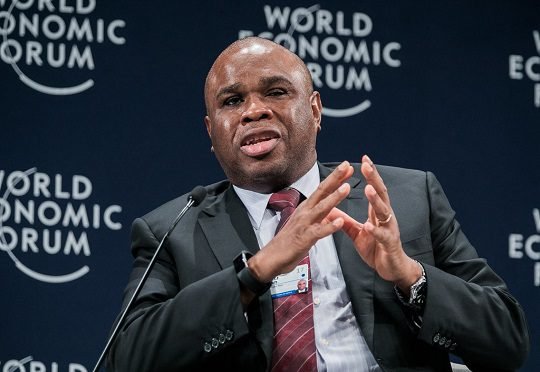The head of the African Export-Import Bank (Afreximbank), Prof. Benedict Oramah, has encouraged African heads of state to secure more favorable terms in discussions with the International Monetary Fund (IMF).
He emphasized that African nations must leverage their membership in the IMF to seek improved treatment when requesting assistance from the fund.
At the unveiling of the Alliance of African Multilateral Financial Institutions in Accra, Prof. Oramah highlighted the importance of African countries uniting to tackle issues impacting the financial sectors of their respective economies.
“It’s either you go there or quit. Because we are members of the IMF. The only problem is that when they go, they must make sure that they treat us the way they treat the European or Asian countries. I think that’s what we have to demand”, he said.
“African countries must demand a change in the quota. We cannot have a continent with a 17 percent population of the world and have a five percent quota of an institution that have to bring stability in the micro-economies of these countries. They must know that African countries are members and not an outsiders. We shouldn’t expect anybody to dictate for us”, he stressed.
Offering some suggestions, Professor Oramah emphasized the necessity of a united effort among African countries to create their own credit rating agency.
He pointed out that setting up a rating agency within Africa is a long-awaited initiative.
Elaborating further, he mentioned that an African Credit Rating Agency is crucial for intra-continental integration, allowing African nations to access capital and connect with global financial markets.
“It is institutions like ours that can force the IMF to recognize an African rating agency. When we go to China and Japan, they tell us to go to their own agencies to be rated but for us when we always want to issue papers we have to be rated by Fitch and whatever. We are just doing ourselves ill so charity begins at home so we need to do it” he said.
The Alliance of African Multilateral Institutions seeks to work together and share information on innovative joint strategies and frameworks to meet Africa’s development challenges.
Additionally, it aims to advance and uphold collective stances on shared concerns in international forums, including advocating for Africa’s interests in global financial matters.

